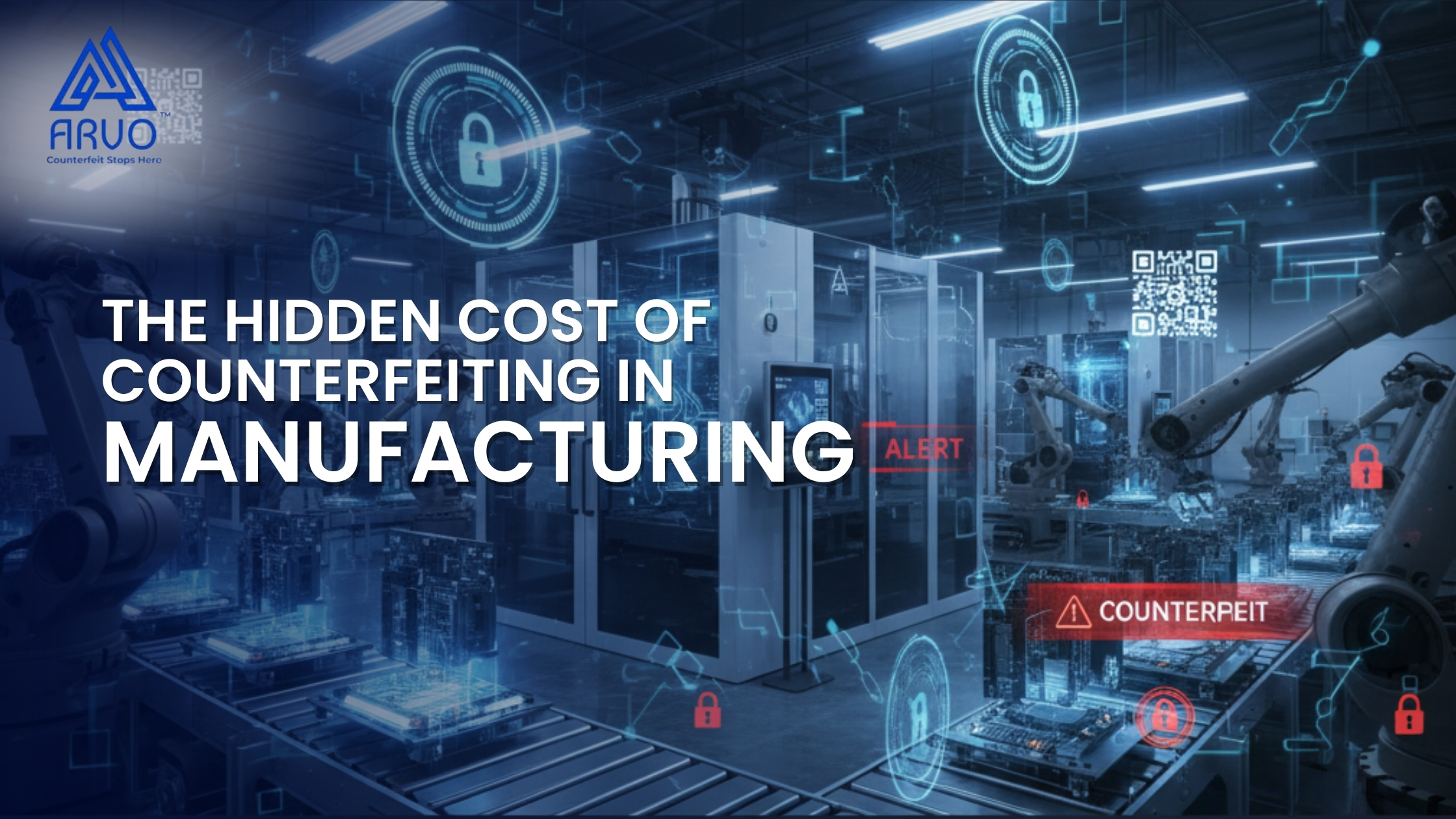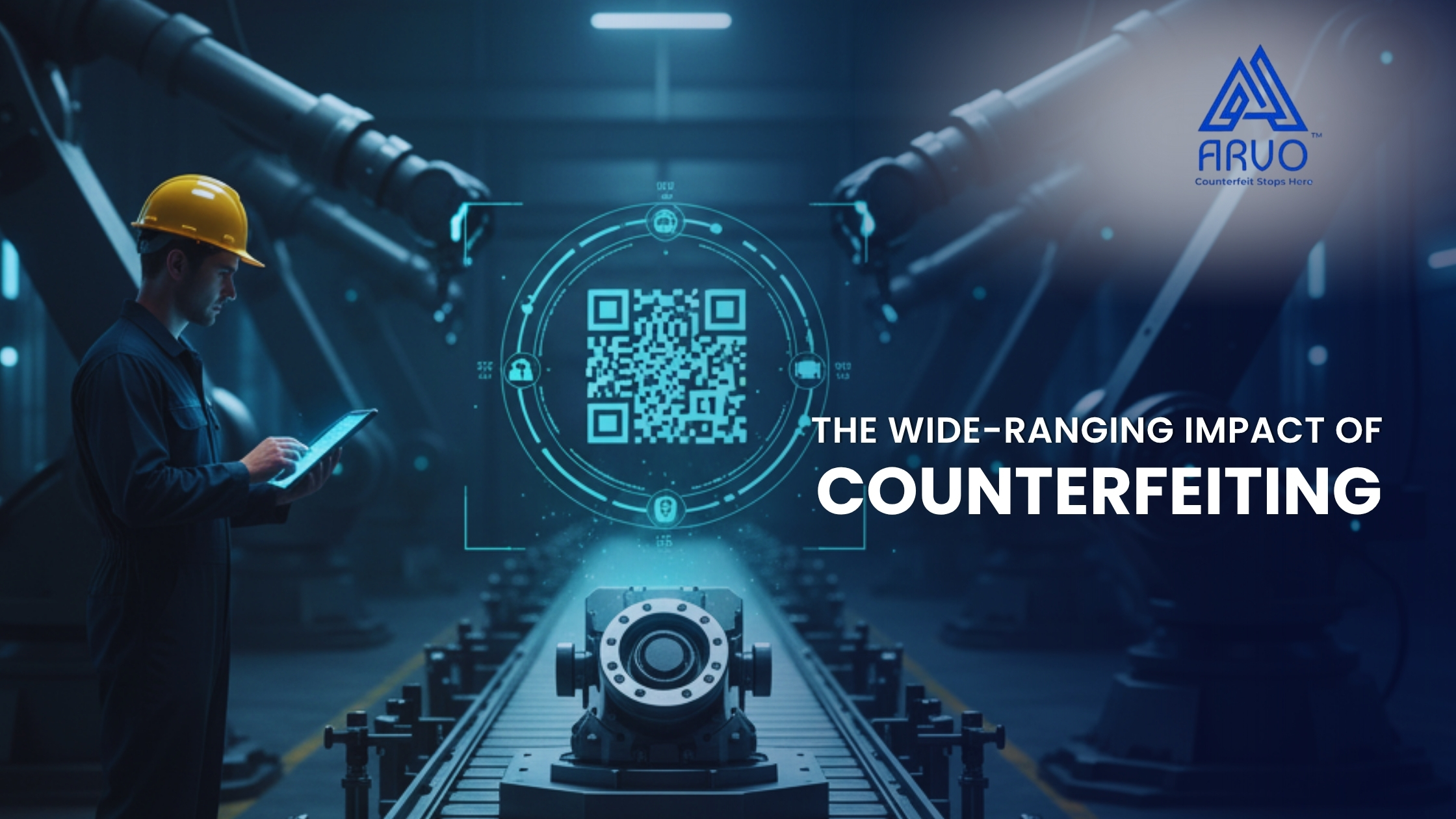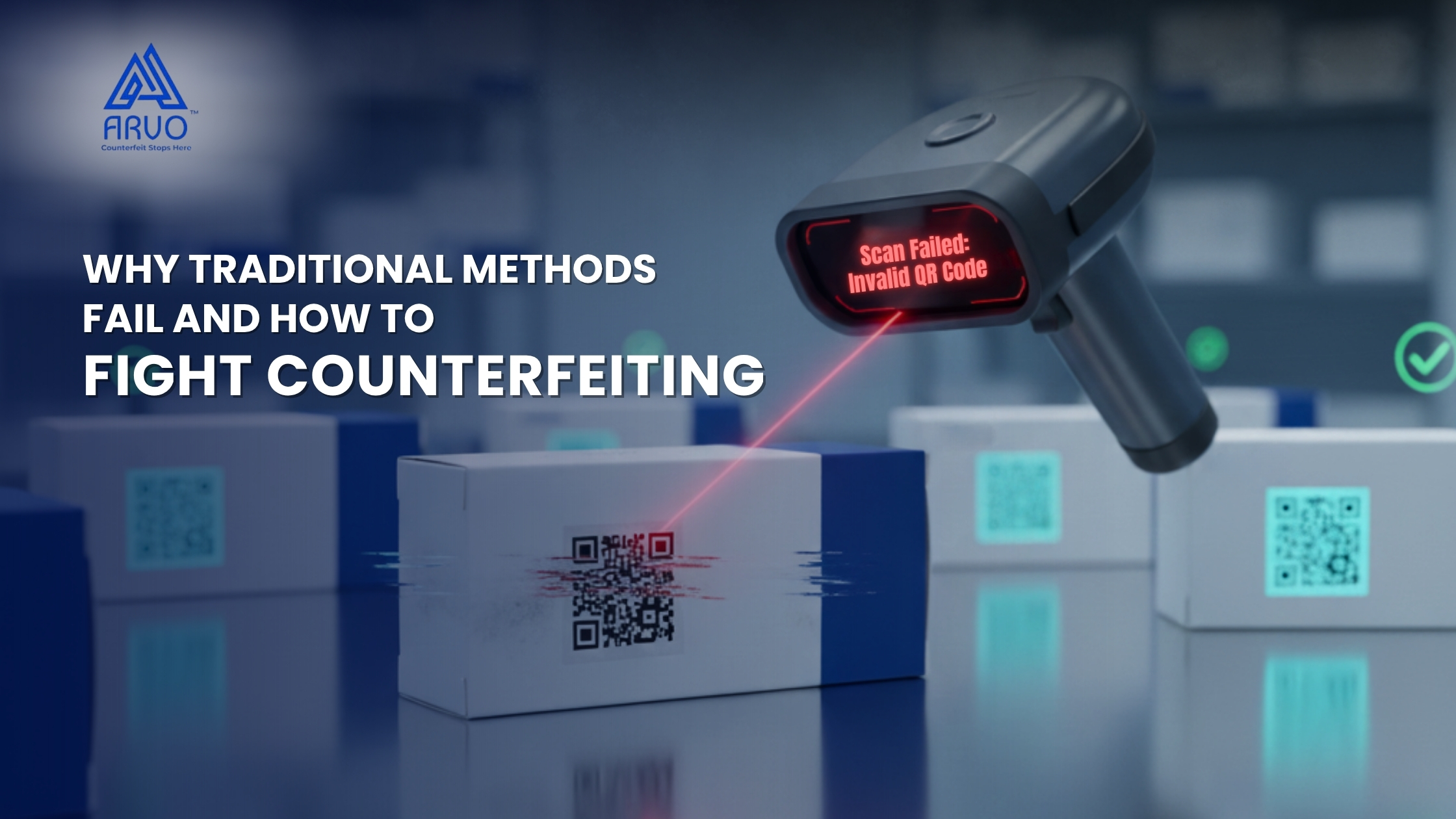
Factories are nowadays faced with a big problem of counterfeiting. Not only in ordinary
products, but also in such serious areas as aerospace, automobiles, and electronics, counterfeit
parts are being found. The outcome is a massive loss of money, safety issues, and loss of
reputation by companies worldwide.
Approximately USD 467 billion of international trade was in counterfeit goods in 2021. It is
projected to increase to USD 1.79 trillion by 2030, or 5% of all world trade. To manufacturers,
the losses are enormous:
- The annual loss to consumer and industrial businesses due to counterfeit parts is
approximately $250 billion. - Counterfeit parts cost carmakers over $45 billion annually.
- Counterfeit components cost the chip industry approximately $75 billion a year.
These statistics demonstrate a severe problem. Counterfeit components waste money and
cause safety, operational, and brand issues. With larger and more global supply chains, it
becomes more difficult to detect and prevent counterfeit products.
The Increasing Counterfeiting in the Production
The numbers say it all. According to industry reports, counterfeiting costs the world over 500
billion dollars annually, with factories being one of the worst-affected sectors.
- Aerospace and automobiles: counterfeit components may lead to crashworthy failures and
costly recalls. - Electronics: counterfeit chips damage the reliability of products.
- Pharmaceuticals and chemicals: counterfeits may be fatal and may result in fines.
There is also money wasted on the costs that cannot be traced, like the stalled production,
lawsuits, regulatory fees, and loss of a brand of company in the long run.

The Extensive Impact of Counterfeiting on the Production
Counterfeit products are not a supply-chain inconvenience. They constitute a grave international
concern impacting safety, security, and the economy. Here are the main problems:
- Dangerous Products: Counterfeit industrial components are commonly produced using
low-quality and inexpensive materials that fail under pressure. This may cause fatal equipment
malfunctions in such critical sectors as aerospace and cars. - Operational & Security Risks: Fraud, data leakage, and cyberattacks are some of the risks
that businesses face because of false components and unscrupulous suppliers. Frauds can also
halt production lines and interfere with delivery. - Economic & Tax Losses: Deceitful businesses evade taxes and regulations, stealing funds
that could be used to build roads, schools, and services. - Child Labor: Most of the counterfeit networks employ unfair labor practices and are linked to
organised crime, which provides unsafe employment and infringes on human rights. - Brand Damage: Counterfeit products decrease confidence in authentic producers. Customers
lose trust when counterfeit copies are being passed off as genuine, and this damages the brand
over a period of time.
Counterfeiting is not only a corporate issue. It is an economic, social, and safety systemic
challenge. In the case of factories, it is prudent and morally right to develop effective
anti-counterfeiting protection.
Dangers of Counterfeit Products.
Counterfeit products in the manufacturing process pose numerous threats:
- Safety hazards. Planes or cars can have accidents due to bad parts.
- Operational disruption. Copies usually lead to recalls, downtime, and supply-chain failures.
- Reputation loss. When trust is compromised, it becomes extremely difficult to regain customer
trust.

The reason why conventional detection methods are ineffective
Counterfeiters continue to penetrate supply chains even after several years of work. The old
systems, such as paper records, manual checks, and old tracking systems, are no longer
effective. Complicated, international networks allow counterfeit products to pass through.
Manufacturers are still at risk without digital, auto-updated, secure tracking.
Measures to fight counterfeiting in industrial production.
The counterfeiters pose a danger to cash, reputation, and safety. Companies must act early.
Some of the effective ways are as follows:
Apply hi-tech Anti-Counterfeiting Technology.
Include security information like holograms, QR codes, and digital watermarks to ensure that it
is easy to verify whether a product is authentic or not. The additional protection is created by
new packaging concepts, which make it difficult to imitate by counterfeiters. These applications
enable companies and clients to check authenticity within a short time.
Use Blockchain Tracking.
It maintains an unchangeable record of each product in the chain so that counterfeits cannot
reach the customer. It is already used in pharmacies, aerospace, and luxury brands.
Work with Law Enforcement and Industry Groups.
It is more effective to cooperate with government agencies, trade associations, and
anti-counterfeiting organizations. Indicatively, recently, New York officials confiscated over 1
billion dollars of counterfeit products—the largest in the U.S.
Carry out Frequent Supply Chain Audits.
Counterfeiters exploit weaknesses in supply chains. Regular inspections will identify weak
areas, implement quality regulations, and ensure suppliers operate within the law, preventing
the entry of counterfeit products.
Train Customers about Counterfeit Detection.
Educated customers are involved in combating counterfeiting. Businesses can provide
verification resources, labels, and educational resources to ensure that customers can
distinguish between authentic products and counterfeits. Educated consumers will not purchase
counterfeit products easily.
The investment in such strategies ensures revenue, builds brand confidence, and maintains
long-term operational reliability.
Conclusion
Faking is not just money wasted, but it is a threat to safety, a breach of regulations, and a
breach of trust. It can be stopped with new tools and plans.
We assist companies in maintaining their supply chains, safeguarding their brands, and
increasing profits at ARVO. The future of making stuff is in the companies that remain real,
tough, and innovative.
FAQ’s
Q1. Why is counterfeiting such a critical issue in industrial manufacturing?
In such critical areas as aerospace, automobiles, and electronics, counterfeit components are
prevalent. They lose finances, create work issues, lead to an unsafe working environment, and
damage their reputation. The supply chains are massive and international, hence difficult to
detect, thus businesses require effective anti-counterfeiting strategies.
Q2. How do counterfeit products impact safety and operations?
Counterfeit parts tend to be of low quality and they fail under pressure, resulting in equipment
failure, accidents, and costly recalls. They also halt production, slow down deliveries, and
increase fraud, data, and cyber attack risks.
Q3. Why are the traditional methods of detection no longer adequate?
The current counterfeit networks cannot be matched by hand checks, paper logs, and old
tracking systems. The presence of global and complex supply chains allows the movement of
counterfeit goods without detection, and thus, companies must have digital, secure, and
real-time verification mechanisms to ensure authenticity.
Q4. What is the net advantage of investing in anti-counterfeiting?
State-of-the-art anti-counterfeiting measures protect income, provide credible business,
preserve brand loyalty, and ensure the safety of the populace. Those companies that employ
these measures can survive longer and remain competitive.